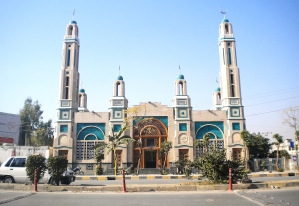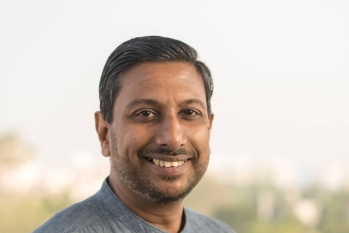
Relatives of a 21-year-old Christian woman in Pakistan who disappeared from her home on Nov. 17 said they are heartbroken and fearful after she resurfaced in court claiming she had converted to Islam and married her Muslim neighbor.
Monica Jennifer’s brother said he believes she was blackmailed and coerced into abandoning her Christian faith and family.
“She was a spirit-filled Christian girl, devoted to her faith,” said Raza Arif, 27, of Rawalpindi, Punjab Province. “There is no way she would willingly choose to leave her home, her religion and her family without pressure.”
Arif said Muslim neighbor Waleed Ahmad abducted her and manipulated and blackmailed her until she felt she had no choice but to leave.
When Jennifer did not return home from work on Nov. 17, relatives immediately reported her disappearance to police that evening, said Arif, a Pentecostal evangelist whose father is employed as a sanitation worker.
“But instead of registering our complaint, they told us to come the next morning,” Arif told Christian Daily International-Morning Star News. “Our First Information Report [FIR] was registered on Nov. 23 only after some rights activists intervened, giving the accused sufficient time to marry Monica after forcibly changing her faith.”
Inordinate delay in police action reflects systemic discrimination faced by Christians and other vulnerable minorities in Pakistan, minority rights activists say.
Arif said that Jennifer’s statement in court that she had converted to Islam and married Ahmad of her own free will was made under pressure.
“My sister was groomed for months,” he said. “She was not in a position to speak freely. We believe she is still under threat.”
Ahmad’s relatives have warned the Christian family to stop pursuing the case, threatening to register a blasphemy complaint against them if they continue challenging the marriage or seeking Jennifer's return, Arif said.
“My elderly parents are terrified, but we have not stopped our efforts to recover her,” he said.
With the support of some local rights groups, the family has filed an application with the Supreme Court-mandated One Man Commission for Minorities, Shoaib Suddle, to direct police to take action on their complaint.
“Monica is a victim of a sham marriage,” Arif said, adding that Ahmad fabricated her Nikahnama (marriage certificate) to protect him from legal action. “The document does not contain Ahmad’s national identity card number, and the signatures of the Nikah Khawan (marriage registrar) will also prove to be fake if the police conducted a fair inquiry.”
Rights defenders note that Jennifer’s case fits a long-standing pattern in Pakistan in which Christian and Hindu girls, often from impoverished families, vanish suddenly and later reappear asserting they have converted and married of their own free will. Families frequently allege abduction, coercion and grooming but are often too afraid to demand justice.
“Once minority girls are declared Muslim, they are often warned that leaving Islam would make them apostates – a label that can lead to targeted violence,” said Katherine Sapna, who works with Christian survivors of forced conversion and forced marriage. “These threats trap girls in marriages they did not freely choose and leave them vulnerable to lifelong abuse in what can also be described as sexual slavery masked as marriage.”
Legal experts emphasize that genuine conversion requires free, informed and pressure-free consent, conditions rarely met in such cases.
“A young woman’s ability to speak freely is severely compromised when abductors are physically present or indirectly controlling her environment,” said Christian attorney Lazar Allah Rakha. “The fear of being accused of apostasy prevents many girls from ever returning home.”
At least 421 cases of forcibly converted and married girls were reported between January 2021 and December 2024 in Pakistan, according to the Annual Human Rights Observer report issued by Lahore-based research and advocacy group, Center for Social Justice. The victims included 282 Hindu girls, 137 Christian girls and two Sikh girls; 71 percent of the victims were minors, of whom 22 percent were under the age of 14, and 49 percent were between the ages of 14 and 18.
Only 13 percent of victims were adults, and the ages of 16 percent remained unverified. The report added that the overwhelming majority of cases, 69 percent, occurred in Sindh Province, followed by 30 percent in Punjab Province.
Arif said the family wants nothing more than to meet her in a safe, neutral setting where she can speak without intimidation.
“We just want our sister to be protected,” he said, his voice breaking. “She knows her family loves her. We want her to know she can come home without fear.”
Pakistan, whose population is more than 96 percent Muslim, ranked eighth on Open Doors’ 2025 World Watch List of the most difficult places to be a Christian.






